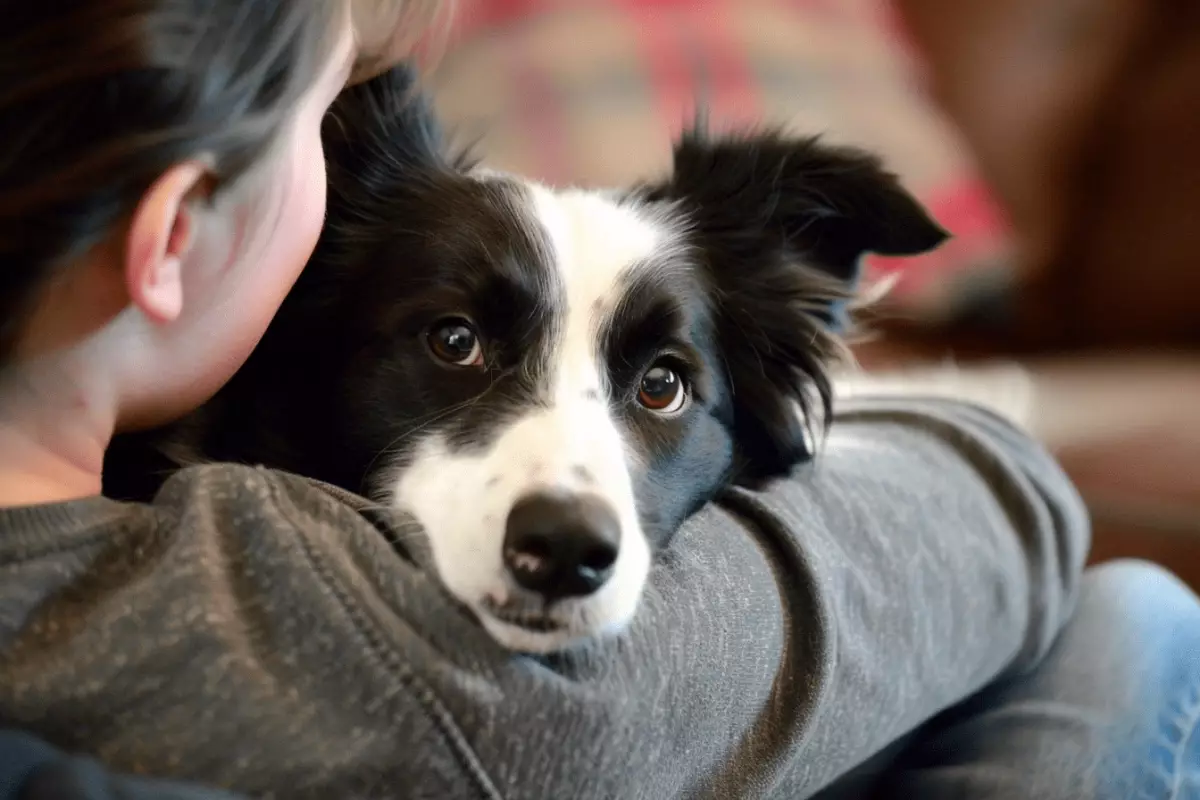Dogs are often celebrated as more than just pets; they are seen as loyal companions who sense our emotions in profound ways. While it’s easy to dismiss canine affection as mere instinct, many dog owners have experienced the extraordinary ability of their furry friends to detect when something is amiss. Whether you’re battling a difficult day, grappling with stress, or simply in need of comfort, your dog seems to have an uncanny knack for recognizing your emotional landscape. They don’t always need words to express their understanding; whether through playful antics, gentle nudges, or unwavering companionship, dogs embody an ethos of unconditional support. Their mission is simple yet powerful: to uplift us, regardless of our circumstances.
A Shadow of Support
Have you ever noticed your dog morphing into your shadow, tail wagging and eyes bright as they follow your every move? This behavior is often misread as clinginess, but let’s not overanalyze it—this is your dog’s way of ensuring you’re okay. Their presence is not just about physical proximity; it serves as a silent promise that you are not alone in your turmoil. From sitting loyally by your feet to curling up in your lap, dogs offer a unique form of comfort that transcends verbal communication. It is their powerful way of saying, “I’m here for you,” reinforcing the bond that exists between you two.
The Gift of Play
One might underestimate the therapeutic potential of a dog’s favorite toy, especially when they sense your sadness. If you’ve concluded a rough day, your dog may dash off to retrieve their most cherished possession—a drooled-on tennis ball or a beloved stuffed animal. This generous sharing is their way of saying, “If this brings me joy, then perhaps it can bring you joy too.” Even if your heart isn’t quite in the mood to engage, accepting their token is an affirmation that their efforts to console you are recognized. This exchange fosters a sense of connection, reinforcing the understanding between human and animal that joy can sometimes be shared in the simplest of forms.
Physical Affection as a Source of Healing
The subtle actions of a dog can be profoundly reassuring. When your canine companion rests a paw on your leg or curls up next to you, they are conveying comfort and connection. Such gestures may appear ordinary but are, in fact, imbued with considerable emotional weight. In moments of sorrow, they often instinctively offer this physical affirmation of support—much like a caring friend might reach out to give your hand a squeeze. This simple, yet tender expression makes it almost impossible to wallow in sadness; after all, who can resist the soft comfort of a dog’s touch?
The Healing Power of Laughter
Have you ever noticed how your dog excels at transitions from somber to silly? In the face of a sad expression, dogs often become spontaneous comedians, performing a cacophony of silly stunts designed explicitly to elicit laughter. Whether they’re chasing their tail or performing acrobatics around the living room, their antics are a natural response to a human’s low mood. Understanding that laughter can shift the energy in a room, dogs rise to the occasion with an unwavering resolve to bring joy back into your life. Their vulnerability in these moments becomes a testament to the unique joy that canines bring.
The Silent Language of Staring
Perhaps one of the more enchanting experiences shared between dogs and their owners is the depth of a gaze. When your dog looks into your eyes while you’re feeling blue, it’s not mere curiosity that drives them; it’s an authentic attempt to connect on a deeper emotional level. Research shows that this interaction stimulates the release of oxytocin—the same hormone that helps bond mothers and their children. Through their unwavering attention and focus, dogs express a profound understanding that transcends the need for spoken language. Their reassuring gaze communicates, “I see you, I value you, and together we can face this.”
The Do-It-Yourself Therapy Approach
While dogs might not have traditional training in emotional support, they possess an intuitive understanding of how to lift spirits. If standard cuddles or toys fail to elevate your mood, your pup may take matters into their own paws by practically dragging you outside for a walk. Their instinctual drive for movement and fresh air can be an essential counterbalance to human inertia during tough times. By nudging you toward activity, they remind us that sometimes the best therapy involves simple action—a brisk walk can be just the antidote your heart needs.
In moments of uncertainty and emotional turmoil, your dog’s presence is not merely welcome; it’s crucial. So the next time your pup takes the initiative to comfort you through cuddles, toys, or amusing antics, recognize it for what it truly is: their unwavering commitment to your well-being. Dogs are more than pets—they are pillars of emotional support in our lives.

